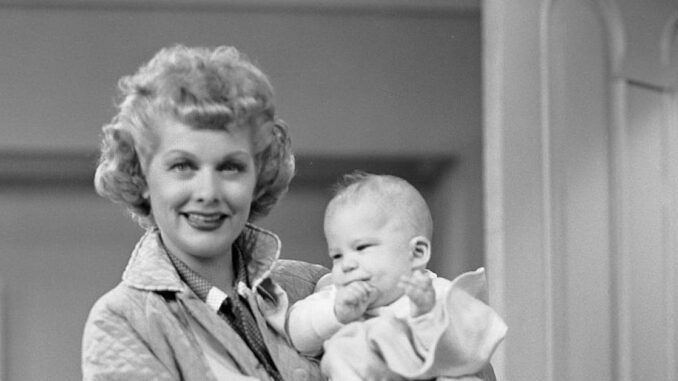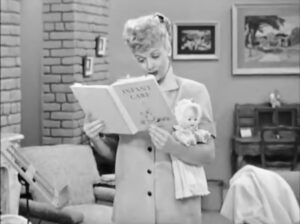
When we think of classic television, one show that always springs to mind is I Love Lucy. This groundbreaking sitcom didn’t just entertain millions; it fundamentally transformed societal perceptions of motherhood in America. With its witty humor and relatable characters, it painted a new picture of what it meant to be a mother during the 1950s. Let’s dive into how this iconic show shifted the narrative around motherhood and reshaped the American family dynamic.
1. The Pioneering Spirit of Lucy Ricardo
A New Kind of Housewife
Lucy Ricardo, portrayed by the talented Lucille Ball, was not your typical 1950s housewife. She was bold, ambitious, and unafraid to break the mold. This character paved the way for women to embrace their individuality, proving that motherhood didn’t mean sacrificing one’s dreams.
Juggling Roles: Mother, Wife, and Career Woman
Lucy’s adventures often revolved around her attempts to support her husband, Ricky, while also pursuing her own aspirations. From aspiring to be a star to launching various schemes to get into showbiz, Lucy showed that a mother could be more than just a homemaker. This duality of roles resonated with many women who were starting to feel confined by societal expectations.
2. Humor as a Reflection of Reality

Laughter as a Coping Mechanism
The show cleverly used humor to depict the challenges of motherhood. Whether it was Lucy’s zany antics in trying to manage her household or her hilarious attempts at helping Ricky with his career, the comedic scenarios highlighted the everyday struggles mothers face. This relatability fostered a connection between the audience and Lucy, encouraging them to find humor in their own parenting journeys.
Breaking Down the Idealized Image of Motherhood
In the 1950s, media often portrayed mothers as perfect homemakers. I Love Lucy flipped this narrative on its head, showing that motherhood was messy, chaotic, and often unpredictable. Lucy’s blunders became a source of comfort for many viewers, allowing them to embrace their imperfections.
3. The Influence of Friendship and Support Networks
Ethel Mertz: The Ultimate Sidekick
Lucy’s best friend, Ethel, played by Vivian Vance, was more than just a sidekick; she represented the importance of friendship in motherhood. Their dynamic showcased how supportive relationships could help mothers navigate the complexities of family life. This camaraderie reminded viewers that they weren’t alone in their struggles.
Communal Parenting: A Modern Approach
The interactions between Lucy, Ricky, and their friends illustrated the value of community in parenting. The show emphasized that raising children didn’t have to be a solitary endeavor; it was a shared experience that benefited from collaboration and support.
4. Shifting Gender Roles in the Domestic Sphere

A New Narrative for Fathers
While the show primarily focused on Lucy’s adventures, Ricky, portrayed by Desi Arnaz, was also an essential part of the equation. He was not just the breadwinner but a loving husband who supported Lucy’s dreams. This representation helped shift perceptions of fatherhood, showcasing men as nurturing partners rather than just providers.
Revisiting the Concept of the Traditional Family
The dynamic between Lucy and Ricky challenged the rigid structure of the traditional family. Their equal partnership in parenting and household duties indicated a more modern approach, encouraging couples to share responsibilities rather than conform to outdated gender roles.
5. Legacy of I Love Lucy in Modern Culture
Cultural Impact: Influencing Future Generations
The legacy of I Love Lucy continues to influence how motherhood is portrayed in media today. It opened the door for more complex representations of women, showcasing their strengths, vulnerabilities, and multifaceted lives.
Contemporary Shows Following in Lucy’s Footsteps
Many modern television shows have drawn inspiration from Lucy’s character, such as The Mindy Project and Brooklyn Nine-Nine, where female leads balance motherhood and career aspirations while facing comedic situations. This ongoing evolution highlights the lasting impact of I Love Lucy on societal views of motherhood.
Conclusion: A Timeless Reflection on Motherhood
In summary, I Love Lucy did more than provide laughter; it reshaped how America viewed motherhood. By presenting a strong, relatable, and humorous portrayal of a mother’s life, the show encouraged women to embrace their individuality while fostering supportive relationships. Its legacy endures, influencing how we depict family dynamics and the diverse roles of women today. As we reflect on the past, it’s clear that Lucy Ricardo was more than just a character; she was a trailblazer who changed the narrative around motherhood forever.